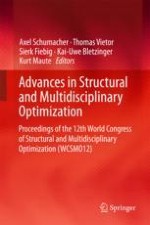2018 | OriginalPaper | Buchkapitel
Pseudo Expected Improvement Matrix Criteria for Parallel Expensive Multi-objective Optimization
verfasst von : Dawei Zhan, Jiachang Qian, Jun Liu, Yuansheng Cheng
Erschienen in: Advances in Structural and Multidisciplinary Optimization
Aktivieren Sie unsere intelligente Suche, um passende Fachinhalte oder Patente zu finden.
Wählen Sie Textabschnitte aus um mit Künstlicher Intelligenz passenden Patente zu finden. powered by
Markieren Sie Textabschnitte, um KI-gestützt weitere passende Inhalte zu finden. powered by
